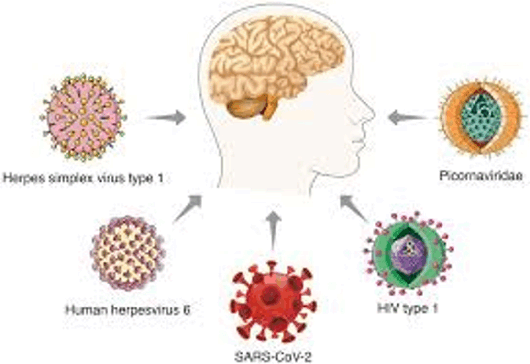충분한 수면을 취하지 못하시나요? 신체와 뇌에 일어나는 일
늦은 밤 이후 시끄러운 알람 시계 소리에 시달리는 건 누구나 알지만 수면 부족은 기분을 떨어뜨리는 데 그치지 않습니다.
Paige Cockburn 지음, Emma Machan 그림
ABC 건강 및 웰빙
주제: 수면
3시간 전3시간 전
abc.net.au/news/health/not-getting-good-sleep-this-is-what-it-s-doing-to-your-body/104159716기사 공유
수면이 충분하지 않으면 다음 날을 문제 없이 보내고 싶을 겁니다. 맞죠?
하지만 앞으로 10년, 20년, 30년을 문제 없이 보내는 건 어떨까요?
어떤 사람들은 매일 제한된 양의 수면으로 지내고, 어떤 사람들은 그것을 명예의 훈장처럼 달고 다닙니다.
모나시 대학교 신경학과 조교수인 매튜 페이스는 “어떤 문화권에서는 충분한 수면을 취하지 못한다고 불평하면 겁쟁이로 여겨지기도 합니다.”라고 말합니다.
하지만 수면은 인체의 거의 모든 부분에 영향을 미치며, 충분한 수면을 취하는 것은 수명에 영향을 미치는 요인이 될 수도 있습니다.
호주 지침에 따르면 18세에서 65세 사이의 성인은 밤에 7~9시간, 65세 이상의 성인은 7~8시간의 수면이 필요합니다.
플린더스 대학교의 수면 의학 연구원인 하나 스콧은 전 세계 사람들의 약 25%가 매일 밤 충분한 수면을 취하지 못한다고 말합니다.
하지만 수면 시간만이 중요한 것이 아닙니다. 하루에서 다음 날로의 수면-각성 루틴의 질과 규칙성도 중요합니다.
스콧 박사는 “최근에 발견한 것은 불규칙한 수면이 얼마나 흔한지이며, [연구에 따르면] 이 불규칙한 수면 패턴은 실제로 매우 해롭다는 사실이 드러나고 있습니다.”라고 말합니다.
충분한 휴식은 수면 장애, 교대근무, 육아, 만성 통증, 폐경, 그리고 휴대폰을 끝없이 스크롤하는 것 등 여러 가지 이유로 찾기 어려울 수 있습니다.
웨스턴 오스트레일리아 대학교 수면 과학 센터 소장인 젠 월시는 이 모든 수면 부족에는 비용이 따른다고 말합니다.
“사람들은 아마 경험했기 때문에 단기적인 영향은 알고 있겠지만 장기적인 영향은 이해하지 못할 수도 있습니다.”
클릭하여 수면이 다음에 어떤 영향을 미치는지 알아보세요.
감정과 정신 건강
단기 기억
사고 위험
심장 건강과 당뇨병
체중
감염이나 통증에 대처하는 능력
알츠하이머병 발병 가능성
암 위험
그리고 또한
이러한 영향을 역전시킬 수 있는지
수면은 아무리 중요하더라도 전반적인 건강의 일부일 뿐이라는 점을 명심하세요.
“잠을 짧게 잔다고 해서 100% 이 모든 질병에 걸릴 것이라는 것은 아닙니다… 위험이 증가할 뿐입니다.” 울콕 연구소와 맥쿼리 대학의 수면 연구원 크리스토퍼 고든의 말입니다.
감정과 정신 건강
수면을 취하면 뇌의 뉴런이 힘들게 얻은 휴식을 취합니다.
하지만 충분한 양질의 수면을 취하지 못하면 다음 날 새로운 연결을 만드는 데 어려움을 겪고 정보를 처리하는 능력이 저하됩니다.
신체는 또한 아드레날린과 코르티솔과 같은 스트레스 호르몬을 유발하는 싸움 또는 도피 모드로 전환됩니다.
더 불안해지고, 성급하게 결론을 내리기 쉽고, 공감 능력이 떨어집니다.
CQUniversity의 피로 및 행동 과학자 드류 도슨은 “그러므로 파트너가 실제로는 없는 5,000달러를 썼다고 말하기에는 적절한 시기가 아닙니다.”라고 말합니다.
수면 부족은 성적 욕망과 각성을 저하시킬 수도 있습니다. 심지어 테스토스테론 수치가 밤에 5시간씩 자는 1주일 후에 최대 15%까지 낮아질 수 있다는 증거도 있습니다.
수면이 부족하면 정신 건강도 급격히 떨어질 수 있습니다.
기운이 없을 때 느끼는 감정적 불안정은 우울증, 불안, 외상 후 스트레스 장애, 양극성 장애를 앓거나 악화시킬 위험이 있습니다.
그리고 이는 양방향 관계로, 정신 건강이 나쁠수록 수면도 나빠질 수 있습니다.
불면증과 같은 야간 각성은 자살 생각과 행동과도 관련이 있습니다.
심리학자이자 수면 건강 재단의 CEO인 모이라 융은 “자정과 오전 6시 사이에 깨어 있는 사람들의 자살 위험이 증가한다는 것을 발견한 ‘자정 이후의 마음’이라는 가설이 있습니다.”라고 말합니다.
Sleeptember입니다.
이번 달에는 숙면을 취하는 데 중점을 두고 있습니다. ABC Health 뉴스레터에 가입하면 매주 수면에 대한 스토리를 이메일로 받아볼 수 있습니다. 수면에 대한 질문이 있으신가요? 9월 13일 라이브 수면 블로그에서 전문가가 답변해 드릴 수 있도록 이메일로 보내주세요.
목록으로 돌아가기
단기 기억
잊기 쉬운가요? 뇌가 단기 기억을 장기 기억으로 전환하는 데 어려움을 겪고 있는 것입니다.
과학자들은 많은 기억 통합이 느린 파동 수면 또는 깊은 수면 중에 일어나기 때문이라고 생각하는데, 수면이 부족하면 이런 수면을 덜 받게 됩니다.
어딘가로 차를 몰고 갔지만 도착한 기억이 나지 않는 적이 있나요?
뇌가 “부하 분산”을 하거나 전략적으로 어떤 기억을 저장하지 않을지에 대한 결정은 에너지를 다른 곳으로 돌릴 수 있습니다.
논리적 추론이 감소하고 동기가 사라지며 기본적인 작업을 완료하기 위해 속도를 줄여야 할 수도 있습니다.
목록으로 돌아가기
사고 위험
피로는 도로 사고의 약 20%에 기여합니다.
5시간 미만의 수면을 단 하룻밤만 취해도 교통사고를 당할 가능성이 두 배나 높아집니다.
이 시점에서 인지 능력은 혈중 알코올 수치가 0.05인 것과 같다고 Dawson 교수는 말합니다.
즉, 속도가 변동하고 도로 반대편으로 건너갈 가능성이 더 높아집니다.
그리고 아무리 노력해도 직장에서 실수가 생길 가능성이 큽니다.
스프레드시트에 잘못된 숫자를 입력하면 그냥 넘어갈 수 있지만 피곤할 때 광산 현장에서 석탄을 훔치면 그 결과가 치명적일 수 있습니다.
불충분한 수면은 모든 직장 부상의 약 4분의 1의 주요 원인으로 추정됩니다.
목록으로 돌아가기
심장병 및 당뇨병
수면 부족의 일부 결과는 더욱 교활합니다.
지속적으로 수면이 부족하면 사이토카인이라고 하는 염증성 단백질이 생성될 수 있습니다.
만성 염증은 우리를 노화시키고 심혈관 질환, 천식 및 죽상경화증(플라그로 인한 동맥 두꺼워짐)의 근본적인 메커니즘이 될 수 있습니다.
염증은 또한 인슐린 민감도에서 중요한 역할을 합니다.
인슐린은 혈당 수치를 조절하고 음식에서 포도당(설탕)을 분해하여 사용할 수 있는 에너지로 만드는 호르몬입니다.
그러나 인슐린 저항이 있으면 세포가 인슐린에 잘 반응하지 않고 혈당이 너무 높은 상태로 유지되어 2형 당뇨병의 위험 요소가 됩니다.
수면이 심장병이나 당뇨병에 영향을 미치는 유일한 요인은 아니지만, 잠을 제대로 못 자도 혈압이 상승할 수 있다는 증거가 있습니다. 이를 고혈압이라고 합니다.
우리가 잠들 때 혈압은 약 10~20% 정도 떨어지지만, 짧거나 단편적인 수면을 취하면 필요한 만큼 낮아지지 않는다고 Woolcock Institute와 Macquarie University에서 수면 장애와 대사 기능 장애를 전문으로 하는 Camilla Hoyos는 말합니다.
“야간 낮잠은 매우 중요한 생리적 과정이므로, 그렇지 않으면 다음 날 고혈압의 원인이 될 수 있습니다. 또한 나중에 심혈관 질환의 결과가 나빠질 수도 있습니다.”라고 Hoyos 박사는 말합니다.
이러한 결과에는 관상 동맥 질환, 심장마비, 뇌졸중이 포함될 수 있습니다.
목록으로 돌아가기
체중 증가
피곤할 때 간식을 멈출 수 없다고 느낀 적이 있습니까? 식욕과 관련된 호르몬이 당신에게 불리하게 작용하기 때문입니다.
포만 호르몬인 렙틴이 감소하여 배부르다는 신호를 받지 못하는 반면, 뇌에 배고픔을 알리는 메시지를 보내는 그렐린은 증가합니다.
그렐린은 좋아하는 음식을 상상하게 하고 보상과 관련된 뇌 부위와 대화하므로 피곤할 때 케이크와 피자와 같은 단 음식과 지방이 많은 음식을 더 많이 먹게 됩니다.
“누구나 기분이 좋아질 음식을 찾는 기분을 경험해 본 적이 있을 겁니다. 마치 깨어 있기 위해 먹는 것과 같습니다.” 월시 박사가 말합니다.
그리고 그 케이크 위에 얹힌 장식은 무엇일까요? 그렐린은 신체가 지방을 저장하는 데 도움이 됩니다. 특히 위와 같은 내장 지방 조직에 지방을 저장합니다.
여기에 피로가 더해지면 평소보다 더 움직이지 않게 되며, 수면 부족이 비만 위험에 처할 수 있는 이유를 알 수 있습니다.
목록으로 돌아가기
면역과 통증
1주일 동안 잠을 많이 잔 후에 아플 때가 있나요? 면역 체계가 수면과 상당히 상호 의존적인 관계를 맺고 있기 때문입니다.
수면이 충분하지 않으면 자연 살해 세포 활동이 감소하고 감염된 세포를 파괴하기가 더 어렵습니다.
밤에 7시간 미만의 수면을 정기적으로 취하는 사람은 정상적으로 8시간 수면을 취하는 사람보다 감기에 걸릴 가능성이 3배 더 높을 수 있습니다.
백신에 대한 항체도 적게 생성되어 백신이 제공하는 보호 효과가 감소할 수 있습니다.
“수면과 면역 체계 사이에는 매우 깊은 연관성이 있습니다. 수면은 신체가 시스템에 대한 공격에 대처하는 데 도움이 됩니다.”라고 Scott 박사는 말합니다.
“예를 들어 환자가 실제 또는 인지된 통증은 수면 부족 후에 더욱 강렬하게 느껴질 수 있으며, 이는 만성 통증을 겪는 사람들에게 특히 문제가 될 수 있습니다.
그리고 통증은 수면을 더욱 방해할 수 있으므로 고통스러운 순환이 될 수 있습니다.
“이것이 회복과 어떻게 관련이 있는지 알 수 있습니다. 짧은 수면으로 인해 통증이 더 심해지면 신체 재활이 더 어려워질 것입니다.”라고 스콧 박사는 말합니다.
목록으로 돌아가기
오전 6시 8분 알람 시계 그림.
알츠하이머병
호주인이 가장 두려워하는 두 가지 질병은 치매와 암입니다.
치매의 가장 흔한 원인인 알츠하이머병은 뇌에 아밀로이드와 타우라는 두 가지 단백질이 특징입니다.
“수면은 쓰레기 트럭처럼 작용하여 알츠하이머병에 축적된 폐기물을 포함한 폐기물을 치우는 데 도움이 됩니다.”라고 파세 박사는 말합니다.
과학자들은 우리가 느린 파동 수면을 충분히 취하지 못하면 글림프계라고 알려진 “쓰레기 트럭”이 아밀로이드와 타우를 제대로 청소하지 못한다고 생각합니다. 그러면 단백질이 축적되기 시작하여 뇌 세포가 죽을 수 있습니다.
“느린 파동 수면이 더 많이 감소한 사람들은 나중에 치매에 걸릴 가능성이 더 높다는 것을 발견했습니다.”라고 Pase 박사는 말합니다.
“수면-각성 일정이 불규칙한 사람들에게서도 같은 결과를 발견했습니다. [하지만] 우리는 인지 기능에 장기적인 영향을 미치려면 얼마나 오랫동안 수면이 부족해야 하는지 아직 결정하지 못했습니다.”
목록으로 돌아가기
암 위험
일부 연구에서는 수면 부족과 유방암, 전립선암과 같은 특정 암 사이에 연관성이 있다고 제안했지만 증거는 일관되지 않습니다.
수면 역학자 Nathaniel Marshall은 서부 호주 버셀턴 주민들의 수면 무호흡증이 암 위험 증가와 관련이 있다는 것을 발견한 연구를 주도했습니다.
하지만 그는 결과를 재현할 수 없었고 무슨 일이 일어나고 있는지 확실히 말할 수 없습니다.
“[나쁜 수면]이 이미 존재하는 암의 성장을 가속화할 수도 있습니다. 아니면 직업적 노출과 같이 측정할 수 없는 다른 것일 수도 있습니다.”
장시간 야간 근무가 일부 유형의 암과 관련이 있을 수도 있다는 증거가 있습니다.
이는 교대 근무자가 우리 몸이 절실히 맞추고 싶어하는 빛-어둠 주기와 동기화되지 않았기 때문일 수 있습니다.
“생체 리듬 조절 장애는 우리가 잠들었을 때조차도 체내 시계가 원하는 것과 일치하지 않기 때문에 우리 몸은 수면 중에 발생하는 조직 복구 및 면역 체계 지원과 같은 중요한 기능을 수행할 수 없습니다.”라고 스콧 박사는 말합니다.
목록으로 돌아가기
오전 6시 20분 알람 시계 그림.
피해를 되돌릴 수 있을까요?
우리 중 많은 사람이 주중에 충분한 수면을 취하지 못하지만 주말에 한두 번 푹신한 잠을 자서 따라잡으려고 노력합니다.
어느 정도 유익할 수는 있지만, 불규칙한 수면은 여전히 위험이 따릅니다. 왜냐하면 우리의 내부 시계가 일관성을 갈구하기 때문입니다.
수면과 기상 시간의 변동은 수면 시간보다 조기 사망을 더 잘 예측할 수 있습니다.
“우리는 때때로 ‘사회적 시차’라고도 하는 이 현상을 더 잘 이해해야 하지만 지금까지의 증거에 따르면 시간이 지남에 따라 부정적인 영향을 미칩니다.”라고 고든 박사는 말합니다.
하지만 나쁜 소식만 있는 것은 아닙니다.
세계 최고의 수면 전문가 중 일부는 따라잡기 수면의 장단점을 따져보고, 근무일에 부족했다면 비근무일에 1~2시간 더 자는 것이 유익할 수 있다는 것을 발견했습니다.
“따라잡기 수면은 이상적으로는 규칙적이어야 하지만, 그것을 달성할 수 없을 때는 따라잡는 것이 그렇지 않은 것보다 낫습니다.”라고 월시 박사는 말합니다.
연구에 따르면 따라잡기 수면은 일부 손상을 역전시키는 것으로 나타났기 때문입니다.
“예를 들어 고혈압을 살펴보았는데, 어떤 사람들은 수면 시간을 20분에서 1시간 정도 늘리면 혈압 측정치가 좋아진다는 것을 발견했습니다.” 호요스 박사가 말했습니다.
“그리고 인슐린 민감도도 주말에 따라잡기 수면을 취한 후 정상으로 돌아올 수 있습니다.”
하지만 반대로 너무 멀리 가서 늦잠을 자면(지속적으로 밤에 9시간 이상 자는 경우) 짧은 수면에서 보이는 것과 같은 건강 문제가 발생합니다.
모든 것에 압도당하는 기분인가요? 수면 과학자들이 원하는 것은 그게 아닙니다.
심리학자 모이라 융게는 “완벽주의는 수면에 좋지 않습니다.”라고 말했습니다.
“지속적으로 6시간 미만으로 수면을 취하지 않는 한, 다음 날 기분에 집중하세요.”
울콕 연구소와 맥쿼리 대학교의 신경생리학자인 앤젤라 드로자리오는 어떤 사람들은 다른 사람들보다 수면 부족에 더 잘 견딘다는 것을 기억하세요.
“어떤 사람들은 6시간 또는 4시간 후에도 괜찮다고 느낍니다. 우리는 그 이유를 완전히 알지 못하지만 어떤 사람들은 다른 사람들의 결핍을 보상하기 위해 뇌의 다른 영역을 모집한다는 증거가 있습니다.”
따라서 수면의 모든 순간에 대해 재앙을 초래하거나 집착하는 것이 아닙니다. 건강을 위해 최상의 비용-편익 분석을 하는 데 도움이 되는 정보를 갖는 것입니다.
“수면을 무엇과 바꾸고 있습니까? 그것도 의문입니다. 우리 모두는 좋은 밤의 휴식을 파티, 공부 또는 돈을 절약하기 위해 더 많이 일하는 것과 바꾸었습니다.” Dawson 박사가 말합니다.
“8시간 자는 사람들 매일 밤 밤을 보내는 것은 정말 지루할 것입니다.”
목록으로 돌아가기
크레딧:
보도: 건강 기자 Paige Cockburn
일러스트레이션 및 제작: Emma Machan
편집: Genelle Weule, EP ABC Science digital, Olivia Willis
위탁 편집자 ABC News: Danielle Cronin
특별 감사의 말씀드립니다. Woolcock Institute와 Macquarie University의 수면 전문가 Christopher Gordon, Camilla Hoyos, Nathaniel Marshall, Angela D’Rozario, Flinders University의 Hannah Scott, CQUniversity의 Drew Dawson, Monash University의 Matthew Pase, University of Western Australia의 Jen Walsh, Sleep Health Foundation의 Moira Junge.
ABC News Story Lab의 Odyssey 형식
Not getting enough sleep? This is what’s happening to your body and brain
We all know the pain of a blaring alarm clock after a late night but sleep deprivation does more than just bring our mood down.
By Paige Cockburn with illustrations by Emma Machan
3h ago3 hours ago
abc.net.au/news/health/not-getting-good-sleep-this-is-what-it-s-doing-to-your-body/104159716Share article
When you don’t get enough sleep you probably just want to get through the next day without too many problems, right?
But what about getting through the next 10, 20, 30 years without too many problems?
Some of us get by on a limited amount of sleep every day, and some of us even wear it like a badge of honour.
“In some cultures, you’re even seen as a bit of a wimp if you complain about not getting enough sleep,” says Matthew Pase, associate professor of neurology at Monash University.
But sleep impacts almost every part of the human system, and getting a good night’s rest may even be a factor in how long you live.
Australian guidelines say adults between the ages of 18 and 65 should have seven to nine hours of sleep per night and those over 65 need seven to eight hours.
Sleep medicine researcher Hannah Scott from Flinders University says about 25 per cent of people around the world don’t get enough sleep each night.
But it’s not just about the number of hours you get. It’s also the quality and regularity of your sleep-wake routine from one day to the next.
“What we have found recently is just how prevalent irregular sleep is, and [research] is emerging that this irregular sleep pattern is actually really detrimental,” Dr Scott says.
Good rest can be elusive for a number of reasons including sleep disorders, shift work, parenthood, chronic pain, menopause and just endless doomscrolling on your phone.
All this missed sleep comes at a cost, says Jen Walsh, the director of the Centre for Sleep Science at the University of Western Australia.
“I think people are probably aware of the short-term effects because they’ve experienced them but they might not appreciate the long-term effects.”
Click through to find out how sleep may impact your:
- Emotions and mental health
- Short-term memory
- Risk of accidents
- Heart health and diabetes
- Weight
- Ability to cope with infections or pain
- Potential to develop Alzheimer’s
- Risk of cancer
And also
Keep in mind that sleep, as important as it is, is only part of your overall general health.
“Just because you have short sleep it doesn’t mean you’re 100 per cent going to develop all these diseases … there’s just an increase in risk,” says sleep researcher Christopher Gordon from the Woolcock Institute and Macquarie University.
Emotions and mental health
When you sleep the neurons in your brain get a hard-earned rest.
But if you don’t get enough quality shut-eye, they’ll struggle to make new connections the next day, and your ability to process information will be compromised.
Your body also goes into fight-or-flight mode which triggers stress hormones such as adrenaline and cortisol.
You’ll feel more agitated, be more prone to jumping to conclusions and be less empathetic.
“So it won’t be a good time for your partner to tell you they just spent $5,000 you didn’t really have,” says fatigue and behaviour scientist Drew Dawson from CQUniversity.
Sleep deprivation might also dampen your sexual desire and arousal. There’s even evidence testosterone levels can lower by up to 15 per cent after a week of getting five hours of sleep per night.
Mental health can also plummet with insufficient sleep.
The emotional instability we feel when we’re running on empty can put us at risk of developing or aggravating depression, anxiety, post-traumatic stress disorder and bipolar disorder.
And it’s a bi-directional relationship, which means the worse your mental health is, the worse your sleep might be.
Nocturnal wakefulness, like that experienced with insomnia, is even associated with suicidal ideation and behaviours.
“There’s a hypothesis called ‘mind after midnight’ which has found an increased risk of suicide for people who are awake between midnight and 6am,” says psychologist and CEO of the Sleep Health Foundation Moira Junge.
It’s Sleeptember
This month we are focusing on getting a good night’s rest. Sign up to the ABC Health newsletter to get stories about sleep in your inbox each week. Got a sleep question? Be sure to email it in so our experts can answer it in our live sleep blog on September 13.
Short-term memory
Feeling forgetful? That’s your brain struggling to convert short-term memories to long-term memories.
Scientists think that’s because a lot of memory consolidation takes place during slow-wave, or deep sleep, which you’ll be getting less of if you’re sleep deprived.
Ever driven somewhere but you don’t remember getting there?
That’s your brain “load shedding” or making strategic decisions about what memories not to store so it can divert energy elsewhere.
Your logical reasoning declines, motivation falls away and you might have to slow down to complete basic tasks.
Accident risk
Fatigue contributes to roughly 20 per cent of road accidents.
After just one night of less than five hours of sleep, you’re twice as likely to have a car crash.
At this point your cognitive abilities are equal to having a blood alcohol level of 0.05, Professor Dawson says.
That means your speed will fluctuate and you’ll be more likely to cross over onto the other side of the road.
And no matter how hard you try, mistakes at work will likely creep through.
If you just put the wrong number in a spreadsheet you could get away with it, but if you use a coal grab on a mine site when you’re tired, the consequences could be deadly.
Inadequate sleep is estimated to be the primary reason for about a quarter of all workplace injuries.
Heart disease and diabetes
Some consequences of sleep loss are more insidious.
Consistently poor sleep may play a role in the production of pro-inflammatory proteins, called cytokines.
Chronic inflammation ages us and can be an underlying mechanism for cardiovascular disease, asthma and atherosclerosis (thickening of the arteries from plaque).
Inflammation is also a central player in insulin sensitivity.
Insulin is a hormone that regulates your blood sugar levels and breaks down glucose (sugar) from food so it becomes energy you can use.
But if you have insulin resistance, your cells stop responding well to insulin and your blood sugar stays too high, which is a risk factor for type 2 diabetes.
Sleep is not the only factor that can contribute to heart disease or diabetes, but there is evidence just one bad night’s sleep may raise your blood pressure, a condition known as hypertension.
When we’re asleep our blood pressure dips by about 10 to 20 per cent, but if we have short or fragmented sleep we don’t get the dip we need, says Camilla Hoyos, who specialises in disturbed sleep and metabolic dysfunction at the Woolcock Institute and Macquarie University.
“Nocturnal dipping is a very important physiological process so if you don’t have that, it might be the reason for hypertension the next day. It may also be the cause of poor cardiovascular outcomes down the track,” Dr Hoyos says.
Those outcomes can include coronary artery disease, heart attacks and stroke.
Weight gain
Ever feel like you can’t stop snacking when you’re tired? That’s because the hormones associated with your appetite are working against you.
The satiety hormone leptin decreases so you won’t get the signal that you’re full, while ghrelin, which sends messages to your brain that you’re hungry, increases.
Ghrelin can make you imagine your favourite foods and talks to parts of your brain that are associated with reward, so you’re more inclined to indulge in sugary, fatty foods like cake and pizza when you’re tired.
“Everyone’s experienced that feeling where you’re searching for the food that’s going to make you feel better. It’s almost like we’re eating to stay awake,” Dr Walsh says.
And what’s the icing on said cake? Ghrelin helps your body store fat, particularly in visceral fatty tissue, like the stomach.
Combine this with fatigue, which makes us more sedentary than usual, and it’s clear why sleep deprivation can put us at risk of obesity.
Immunity and pain
Ever get sick after a week of big nights? That’s because your immune system has a pretty co-dependent relationship with sleep.
When we don’t get enough, our natural killer cell activity is reduced and it’s harder to destroy infected cells.
Those who regularly get less than seven hours of sleep a night could be three times as likely to get a cold than those who normally get eight hours.
You might produce fewer antibodies to vaccines too, which can reduce the protection the vaccine offers.
“There’s quite a profound link between sleep and the immune system — sleep helps our body to cope with assaults on the system,” Dr Scott says.
“This is why, for example, it’s so important that patients in hospitals get really good sleep, as their body needs it to fight whatever is going on for them.”
Real or perceived pain can also seem more intense after poor sleep, which may be particularly troubling for people living with chronic pain.
And it can be an agonising cycle as pain can then further disrupt your sleep.
“You can see how this would relate to recovery as well, if you feel more pain due to short sleep, that will make physical rehabilitation harder,” Dr Scott says.
Alzheimer’s
We know the two diseases that are most feared by Australians are dementia and cancer.
Alzheimer’s disease, the most common cause of dementia, is characterised by two proteins in the brain: amyloid and tau.
“Sleep acts like a garbage truck and helps clear out the waste, including the waste that accumulates in Alzheimer’s disease,” Dr Pase says.
Scientists think when we don’t get enough slow-wave sleep the “garbage truck”, known as the glymphatic system, fails to properly clean up amyloid and tau. The proteins can then start to accumulate, which may cause brain cells to die.
“We’ve found that people who gave greater declines in slow-wave sleep were more likely to get dementia later in life,” Dr Pase says.
“We found the same for those who had irregular sleep-wake schedules. [But] we’re still determining how long you need to have poor sleep for to make a long-term impact on cognitive function.”
Cancer risk
Some studies have also suggested an association between poor sleep and specific cancers, such as breast and prostate, but the evidence is inconsistent.
Sleep epidemiologist Nathaniel Marshall led a study that found sleep apnoea among residents of Busselton, Western Australia was associated with an increased risk of cancer.
But he hasn’t been able to replicate the results and can’t definitively say what’s happening.
“Maybe [bad sleep] accelerates the growth of an already-present cancer. Or maybe it’s just other stuff that we can’t measure like occupational exposure.”
There is evidence that working night shift for prolonged periods may also be linked to some types of cancer.
This may be because shift workers are out of sync with the light-dark cycle that our body so desperately wants to align itself with.
“Circadian dysregulation means even when we’re asleep, because it’s not in line with what our internal body clock wants, our body is less able to perform those vital functions of tissue repair and immune system support that happen during sleep,” Dr Scott says.
Can you undo the damage?
Many of us don’t get enough sleep during the week but try to play catch-up on the weekend with a nice sleep-in or two.
While that can be beneficial to some extent, irregular sleep still comes with risks because our internal clock craves consistency.
Fluctuating sleep and wake times might even be more predictive of premature death than sleep duration.
“We need to better understand this phenomenon that’s sometimes referred to as ‘social jetlag’ but the evidence so far suggests it has a negative effect over time,” Dr Gordon says.
But it’s not all bad news.
Some of the world’s best sleep experts weighed up the pros and cons of catch-up sleep and found it could be beneficial to get an extra one or two hours on non-work days if you fell short on your work days.
“So ideally you want regularity but when you can’t achieve that, catching up is probably better than not,” Dr Walsh says.
That’s because research has found catch-up sleep reverses some damage.
“They’ve looked at hypertension for example and found that if some people improve their sleep by between 20 minutes and one hour their blood pressure measurements change for the better,” Dr Hoyos says.
“And insulin sensitivity can also return to normal after a weekend of catch-up sleep.”
But if you go too far in the other direction and start oversleeping (consistently getting more than nine hours a night) you run into some of the same health problems we see with short sleep.
Feeling overwhelmed by it all? That’s not what sleep scientists want.
“Perfectionism isn’t good for sleep,” psychologist Moira Junge says.
“Focus on how you feel the next day, as long as you’re not consistently getting less than six hours.”
And remember, some of us are more resilient to sleep loss than others, says Angela D’Rozario, a neurophysiologist at the Woolcock Institute and Macquarie University.
“Some people feel OK after six or even four hours. We don’t completely know why but there’s evidence some people recruit different areas of the brain to compensate for deficits in others.”
So it’s not about catastrophising or obsessing over every minute of sleep. It’s about having the information that helps you make the best cost-benefit analysis for your health.
“What are you trading sleep for? That’s got to be the question too. I mean we’ve all traded a good night’s rest for a party, to study, or to work more to save money,” Dr Dawson says.
“People who sleep eight hours a night every night are probably really boring.”
Credits:
- Reporting: health reporter Paige Cockburn
- Illustrations and production: Emma Machan
- Editing: Genelle Weule, EP ABC Science digital, Olivia Willis
- Commissioning editor ABC News: Danielle Cronin
With special thanks to sleep experts Christopher Gordon, Camilla Hoyos, Nathaniel Marshall and Angela D’Rozario from the Woolcock Institute and Macquarie University, Hannah Scott at Flinders University, Drew Dawson from CQUniversity, Matthew Pase at Monash University, Jen Walsh at the University of Western Australia and Moira Junge from the Sleep Health Foundation.
Odyssey format by ABC News Story Lab










